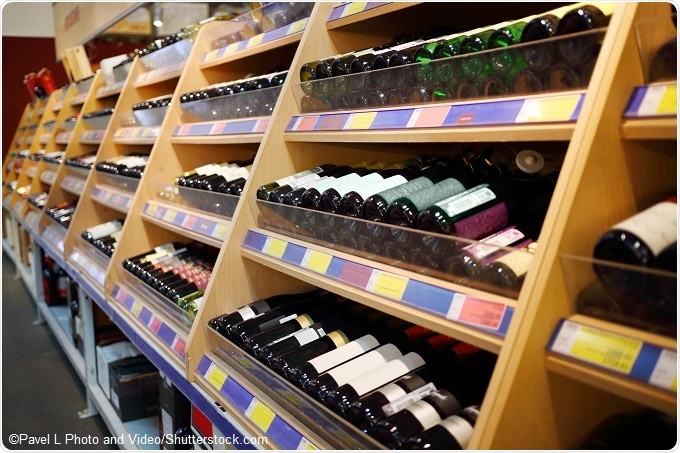Jul 5 2017
A United European Gastroenterology (UEG) report published on July 4, 2017 reveals details of alcoholic consumption in all 28 states of the European Union, with an average of 2 alcoholic drinks being consumed per day by EU citizens. Based on the average alcohol consumption, the report calculates that the EU population has a 21% increased risk of developing colorectal cancer.
The report says that the average daily consumption of alcoholic drinks among citizens of EU is moderate, i.e. one to four drinks a day, but this still increases the risk of both colorectal and esophageal cancer. People who take four or more drinks per day (“heavy” drinkers) were identified to be at an increased risk of liver, pancreatic, and gastric cancer. There were no countries within the EU found with a “light” alcoholic intake of an average of one drink or less per day per person.
Alcohol and Digestive Cancers: Time for Change
The five cancers (colorectal, esophageal, liver, pancreatic, and gastric) are the most common digestive cancers worldwide. Altogether, they result in three million deaths per year, contributing to more than one-third of cancer deaths globally.
Among all nations of the world, the European region is the highest in alcoholic consumption. More than one-fifth of the entire European population over the age of 15 has the habit of heavy drinking at least once in a week. Consequently, the continent suffers the highest proportion of premature death and ill health that are directly linked to alcohol.
The study shows that regardless of the high consumption levels across the region, nearly 90% of the people do not know the connection between cancer and alcohol.
Considering these alarming statistics, the council of European Union has made “tackling of the harmful use of alcohol” as the main priority of the forthcoming Estonian presidency.
The messages provided to consumers on the recommended units, glasses, and volume of alcohol is of a mixed nature. Therefore, to help eliminate confusion on appropriate consumption levels, UEG suggests a pan-European approach for the delivery of clear and consistent information regarding health risks of alcohol intake.
One of the main challenges in addressing high drinking levels is how deeply embedded alcohol consumption is within the European society, both socially and culturally,”
Professor Markus Peck, leading digestive health expert.
He believes political action such as decreasing the accessibility to alcohol and implementing a minimum pricing strategy must be taken in order to prevent future casualties. This must also be followed up with research to help generate data so that the activity can be further fine-tuned and improved.
The report, considering France as an example, outlines other important steps in tacking the crisis of alcohol consumption and in turn digestive cancers, such as, increasing pressure on the alcoholic industry in developing clear and responsible labeling, along with strict regulations on marketing alcohol.
Source:
- https://www.ueg.eu/press/releases/ueg-press-release/article/alcohol-consumption-putting-vast-majority-of-europeans-at-risk-of-digestive-cancers-report-reveals/